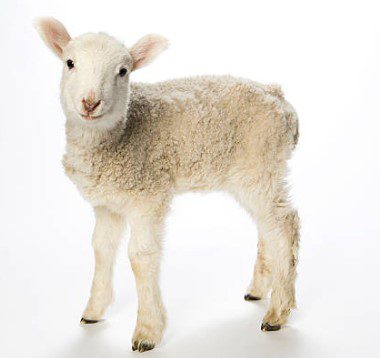

Dogs affected with lamb allergy may experience skin irritation, hot spots, itching, hair loss, red/inflamed skin, and coughing. They may also experience gastrointestinal discomfort, including vomiting and diarrhea.
A lamb allergy in dogs is often caused by the proteins present in the animal’s fur or dander. In addition, ingesting lamb-based foods or treats can also cause an allergic reaction, as can coming into contact with other products that contain lamb proteins or byproducts, such as shampoos or flea treatments. In some cases, environmental conditions, like pollen, can also trigger a reaction.
Diagnosis of a lamb allergy in dogs usually involves a combination of physical examination, medical history, and laboratory tests including skin testing and blood tests. The veterinarian may also recommend diet trials which involve eliminating proteins from the dog’s diet and reintroducing them one at a time to identify the trigger food. If necessary, further testing may be done such as X-rays or ultrasound to look for signs of inflammation and infection.
Dog allergies to Lamb can be very serious and if left untreated can cause discomfort and even death. The mortality rate for dogs who do not receive treatment for a Lamb allergy is not well established. However, it is important to seek medical attention as soon as possible if your dog has any of the above mentioned symptoms, as they can become quite severe if not treated.
Dogs affected with a lamb allergy should be given an elimination diet to identify the allergen and determine which protein sources their body cannot tolerate. In addition to avoiding the allergen, it is important to provide long-term symptom relief through an anti-itch shampoo, fatty acid supplements, and anti-inflammatory treatments. If necessary, veterinarians may prescribe allergen-specific immunotherapy to the dog to help it develop a greater tolerance for the allergen.
Prevention methods for lamb allergy in dogs include avoiding feeding dogs lamb-based food, treating any skin allergy symptoms immediately, and bathing the dog regularly to remove allergens. Additionally, it is important to use hypoallergenic grooming products and avoid exposing the dog to any potential sources of lamb-based food. It may also be beneficial to speak with a vet for further advice on preventing and managing the allergy.
Dog allergies are not contagious and cannot be passed to humans. However, some people can experience allergies when exposed to a dog with an allergic reaction, such as those who are prone to environmental allergies. It is important to consult a veterinarian if your dog shows any signs of an allergic reaction, as some treatments may be necessary.
Lamb allergy in dogs is commonly confused with a beef or pork allergy, as these meats share similar proteins. .
While there is no specific home remedy for managing a lamb allergy, providing the dog with a hypoallergenic diet is generally the best approach. Additionally, avoiding contact with lamb, being sure to thoroughly clean any areas the dog has been exposed to, and providing soothing baths or shampoos may offer some relief for the dog. Supplements like omega-3 fatty acids and evening primrose oil, as well as anti-histamines, may also help to alleviate symptoms associated with the allergy
Although these dog allergy remedies may provide some relief for the pooch, it is important to remember that they are not a guaranteed solution. It’s always best to consult your veterinarian for best results.
Dog breeds that are vulnerable to lamb allergy include Australian Shepherds, German Shepherds, and Collies. These breeds, as well as other herding or farm-breeds, may be especially sensitive due to their genetic predisposition to farm-related allergens. This sensitivity may trigger an allergic reaction if exposed to lamb-based food ingredients or supplements. Dogs may also become symptomatic if touching a lamb, its wool, or a lamb’s by-products. As well, inhaling particles from lamb-based ingredients in the air may cause allergic symptoms.
Have you ever had a dog with a lamb allergy? If so, how did you handle the allergies? Did you feel comfortable with the process of managing it or were you overwhelmed? Depending on the severity of the allergy, it may have been a difficult situation for you and your pet. No matter the outcome, it’s important to remember that you did the best you could and that your pet was in good hands. Sending good wishes your way.